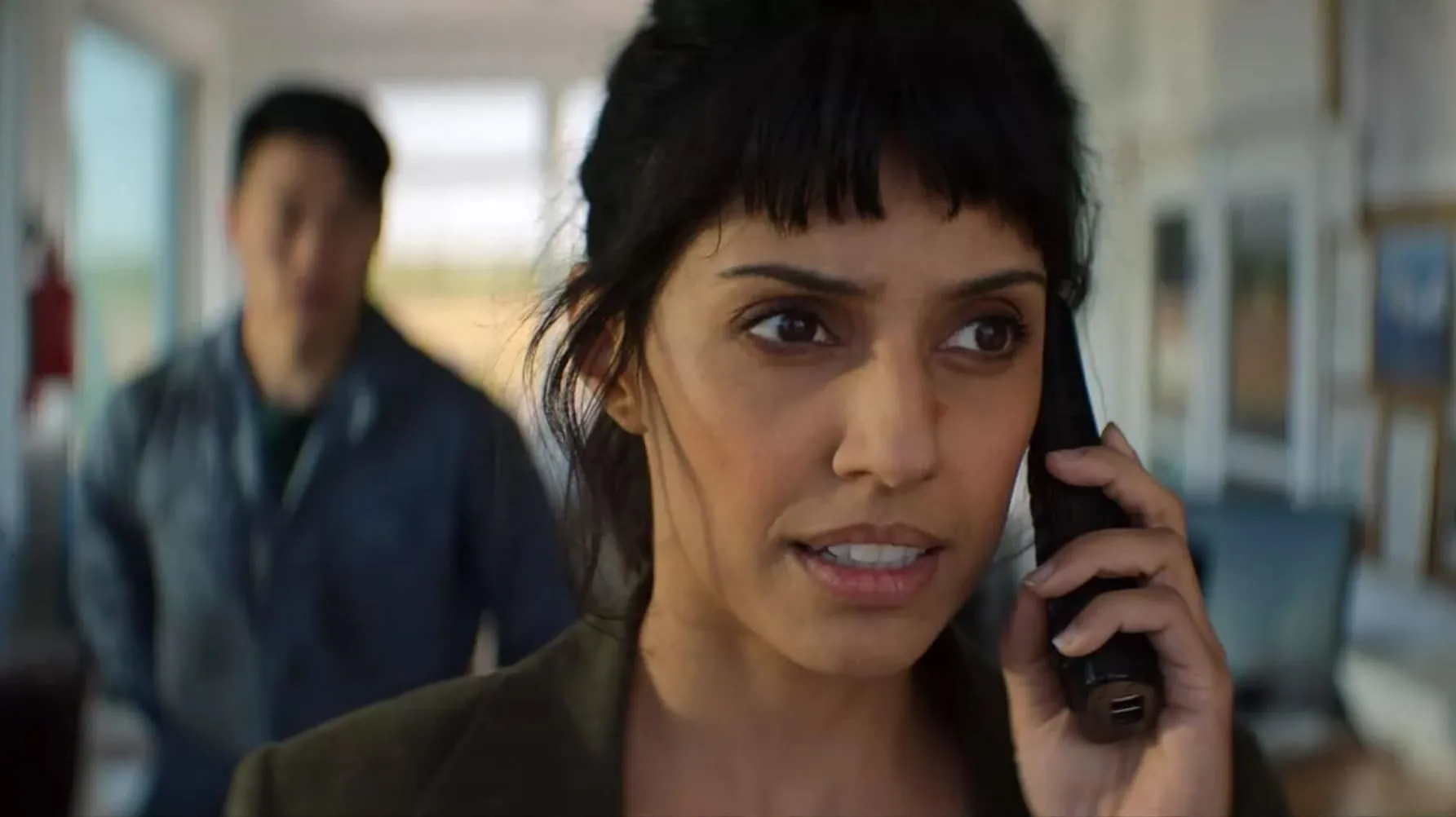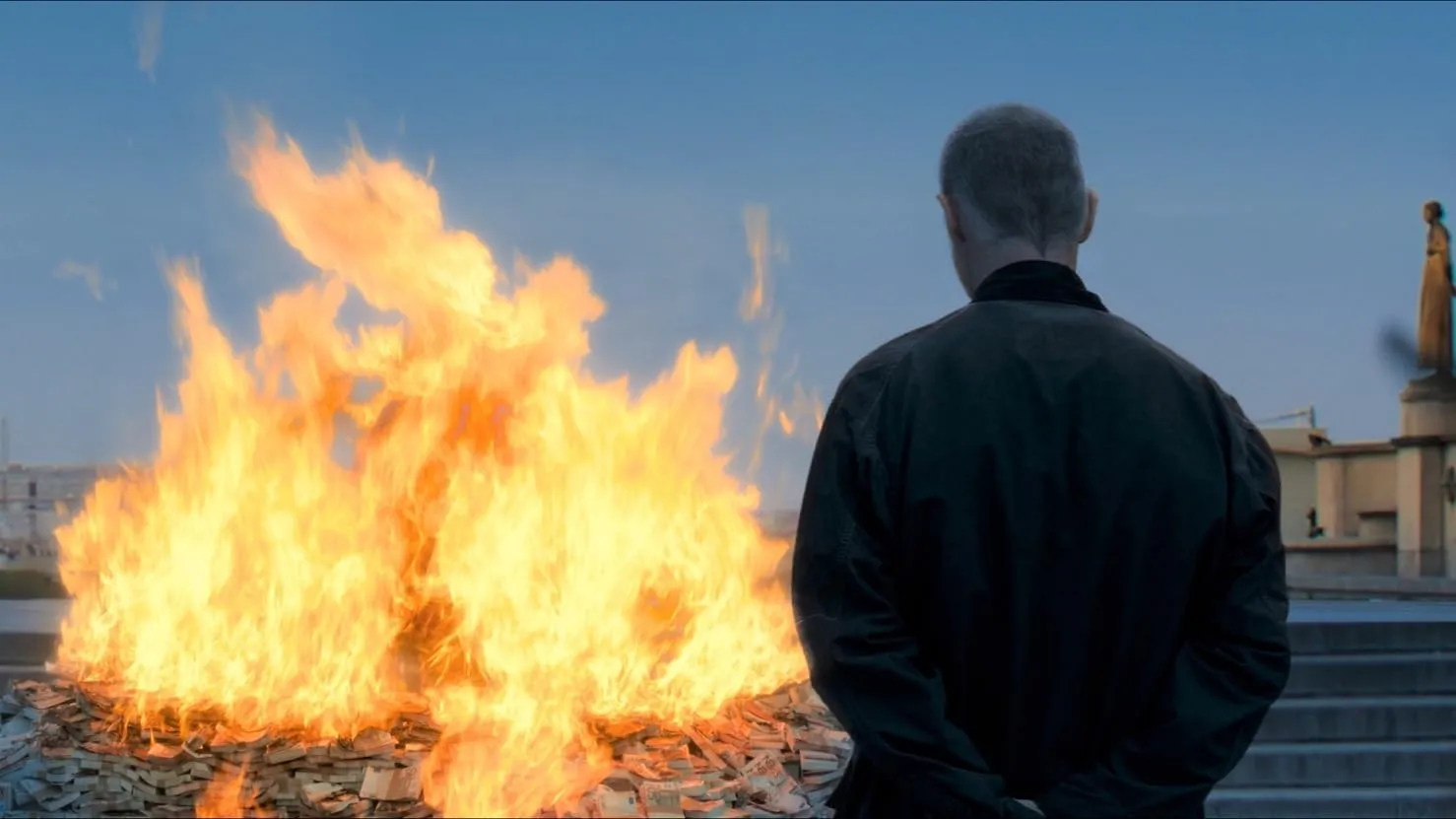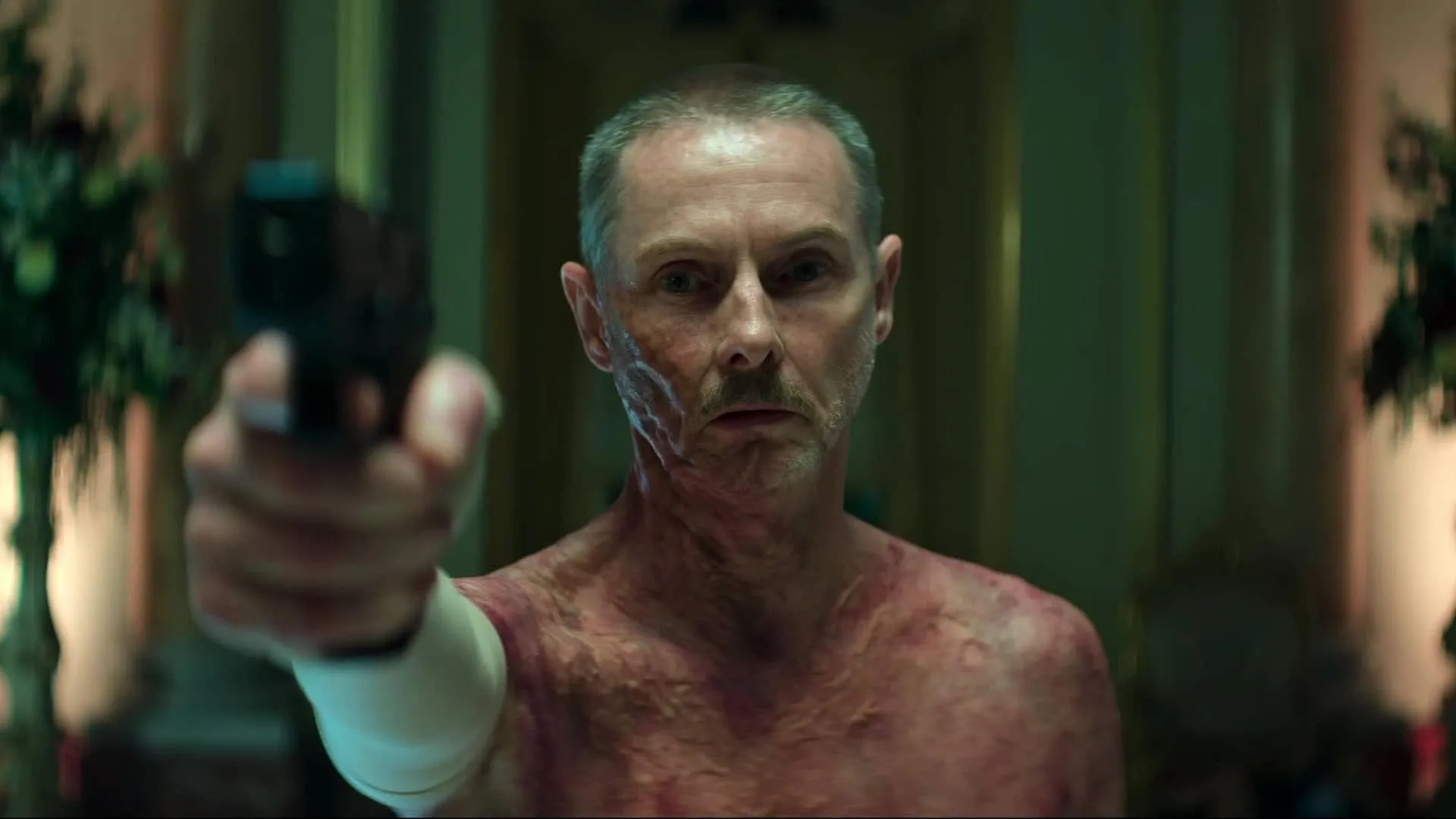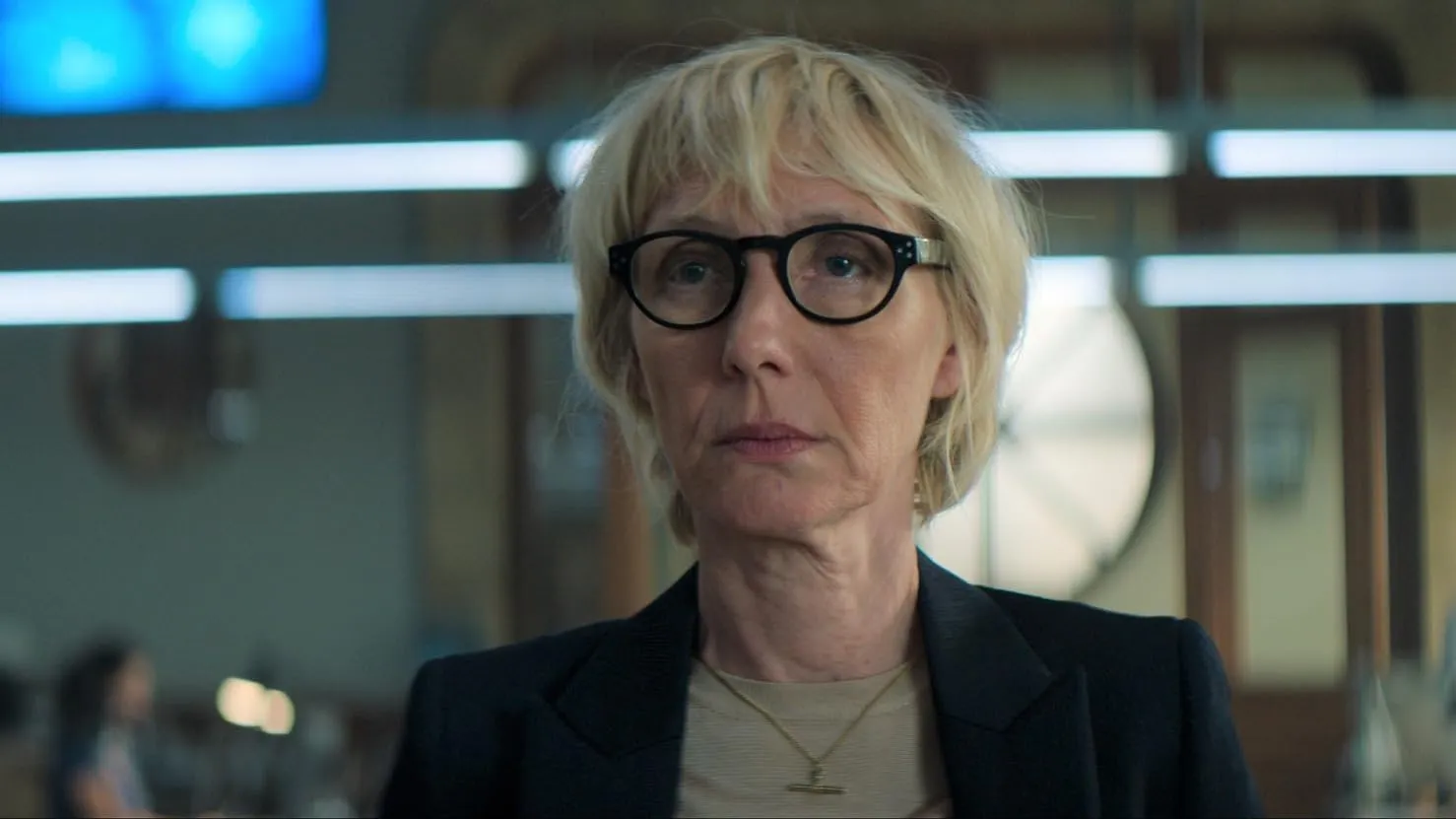“Paris Has Fallen” immerses viewers in the sumptuous yet politically tense atmosphere of the British Embassy in Paris, contrasting diplomatic etiquette with the chaos of terrorism. This backdrop is more than just a stage; it represents the delicate ties between nations, particularly in a post-9/11 world when trust can be a façade.
The series is a spin-off from the blockbuster “Has Fallen” film franchise, which, although widely derided by reviewers, has carved itself a niche in contemporary action filmmaking by combining explosive thrills with a critique of world politics.
The narrative revolves around Jacob Pearce, a character-driven by a desire for vengeance after being betrayed by his country during a terrible service in Afghanistan. His motivations are complicated, grounded in themes of grief and betrayal that resonate with contemporary societal anxieties about loyalty and national identity.
The initial attack on the embassy, disguised as a celebratory gathering, quickly escalates into a tense siege, exposing the dangers lurking beyond the surface of international diplomacy. This incident triggers a chain reaction of events, revealing secrets and emphasizing the vulnerability of security in an increasingly turbulent world.
The series is divided into eight carefully designed episodes, each building on the previous one and introducing major story twists that test our assumptions. The narrative effectively combines action and character development, allowing for a more in-depth look at the protagonists, Vincent and Zara.
Their uneasy alliance develops against rising tensions, with each episode revealing new levels of personal stakes inside the larger battle. The pacing, while at times evocative of typical action cliches, utilizes novel storytelling strategies to keep viewers involved, making it a recognizable yet refreshing addition to the action genre.
Character Analysis
Vincent Taleb, played by Tewfik Jallab, is a classic action hero who, at first glance, appears to fit the type of stoic guardian. However, as the series progresses, we see layers underlying his rough demeanour. Vincent’s motivations are inextricably linked with his sense of duty and personal loyalty, particularly to people he has pledged to protect.
His character growth is most poignant during moments of weakness when we witness him struggling to balance the responsibilities of his career with the emotional toll of the violence around him. This inner battle provides a novel perspective on the action genre, avoiding the one-dimensional paradigm.
In contrast, Ritu Arya’s Zara Taylor emerges as a memorable character in this narrative environment. Her character, an MI6 spy disguised as an HR professional, is a smart take on typical espionage positions. Zara navigates not just the dangerous waters of international politics but also her personal life, which is marked by the complexities of a troubled relationship with an addict boyfriend. Her biting humour and resilience make her an appealing protagonist, and her journey of self-discovery in the chaos resonates with audiences on a personal level. Zara’s struggles represent a generational transition, reflecting the anxieties of modern life—balancing professional expectations with personal integrity.
Sean Harris’ outstanding portrayal of Jacob Pearce serves as the series’ emotional centre and its villain. His past, as a former soldier betrayed by those he served, imbues him with sad depth that goes beyond the standard villain image. Pearce’s motivations spring from deep disillusionment and wrath, making him a sympathetic character rather than a generic antagonist. His complexity leads the theme to reflect on the larger themes of loyalty, betrayal, and the psychological scars of war. Unlike typical villains, who frequently represent clear-cut evil, Pearce is imbued with a sense of tragic heroism; his heinous actions are motivated by a desperate need for justice.
This complex representation challenges the black-and-white morality prevalent in action films, suggesting that the line between hero and villain can blur, especially in a world of moral ambiguity. In many ways, Pearce resembles the complexities of characters seen in great films by directors such as Jean-Luc Godard and François Truffaut, in which character motivations are inextricably linked to their social circumstances. This depth not only enhances the narrative but also raises “Paris Has Fallen” above traditional action fare, making it a contemplative reflection on the human condition in these troubled times.
Themes and Tone
“Paris Has Fallen” is a riveting portrayal of revenge and justice, symbolized by the character of Jacob Pearce. His quest for vengeance is more than a personal vendetta; it reflects a broader cultural reflection on the consequences of betrayal and the moral complexities of justice. The series challenges viewers to consider what it means to pursue justice in a world that has frequently failed to protect its citizens.
Pearce’s actions are set in the context of his terrible past, blurring the borders between right and wrong. This duality is reflected in the protagonists, Vincent and Zara, who are forced to confront their ethical difficulties while pursuing their purpose. Their viewpoints on justice contradict common wisdom, suggesting that in a world filled with corruption and betrayal, the concepts of heroism and justice are anything but simple.
One of the most intriguing features of “Paris Has Fallen” is its subtle depiction of Pearce’s terrible history. The narrative dives into his experiences—betrayal by his country, years of torture, and the loss of his comrades—rather than relegating him to the role of the usual villain. This past humanizes Pearce and draws sympathy from the audience.
It’s a reminder of the complexities of human experience, akin to the character-driven storylines found in the works of directors such as Godard, where narrative is inextricably linked to larger social situations. The series forces us to question our beliefs about morality and justice by portraying Pearce as a flawed but relatable character.
This humanization adds a layer of depth to the narrative, shifting the battle from a basic good-versus-evil dichotomy into a rich tapestry of contradicting forms and emotional realities. It reflects the anxieties of a generation dealing with the consequences of societal failure.
Action and Cinematography
“Paris Has Fallen” features a wide range of action sequences that are both visceral and strategically staged. Notably, the opening scene at the British Embassy sets a high standard, combining tension and a chaotic visual style. Akin to the adrenaline-pumping sequences witnessed in films like “John Wick” or series like “24,” the terrorists’ infiltration is executed with a sense of urgency that keeps viewers on the edge of their seats.
The fight choreography is precise, with practical effects often taking precedence over CGI, giving the clashes tangible weight. Each hand-to-hand combat scenario is imbued with realism to reflect the gritty nature of the characters’ predicament.
While the action is admirable, it sometimes treads familiar ground. The series occasionally slips into the trap of repetitious set-pieces, which, while beautifully executed, might feel predictable compared to the more imaginative approaches found in contemporary indie cinema. However, the sheer intensity of the action frequently outweighs these shortcomings, making it an exciting journey for genre fans.
Visually, “Paris Has Fallen” has a striking look that takes advantage of the city’s backdrop. The cinematography, directed by a great photographer, uses sweeping panoramas of the city to contrast the elegance of its architecture with the violence of the oncoming battle. The camera work is dynamic, with fluid moves and close-ups that portray both the chaos of the action and the characters’ emotional stakes. This strategy not only heightens the tension but also draws the audience into the narrative.
The colour palette, rich in greys and deep blues, adds to the overall tone, creating an atmosphere that is both sad and urgent. The use of natural light in external images contrasts with the harsh indoor lighting of the embassy, heightening the captivity feel. In this sense, the visual aspects complement the narrative, echoing the themes of betrayal and urgency throughout the novel.
Finally, the cinematography and action sequences create a captivating viewing experience, illustrating how “Paris Has Fallen” navigates the line between mainstream film and the more subtle storytelling typically praised in indie films.
Comparative Analysis
“Paris Has Fallen” establishes its own identity within the larger “Has Fallen” franchise while retaining recognizable stylistic and thematic themes. The film series retains the high-stakes action and explosive set pieces that define the films, particularly the visceral action sequences and the overarching themes of betrayal and loyalty. However, its capacity to dig further into character development over eight episodes sets the television format apart, allowing for a more nuanced examination of motivations and relationships.
This prolonged runtime allows for a serialized storytelling strategy, unlike the films’ more condensed, action-driven tales. While movies frequently stress spectacle, the series balances action and emotional implications, giving viewers a richer, more complex character study.
In the crowded landscape of spy and action thrillers, “Paris Has Fallen” stands out alongside renowned franchises such as James Bond and the “Taken” series. The series pays homage to Bond’s sophisticated espionage, particularly through the character Zara, whose charisma and quick wit would fit right in with that environment. Whereas Bond frequently flirts with fantasy—complete with opulent locales and gadgets—”Paris Has Fallen” grounds its narrative in a more realistic context, reflecting contemporary anxieties about security and betrayal in a post-9/11 world.
However, while the series provides some surprising novelty, it does not completely avoid the genre’s conventional features. The typical hero-villain dynamic and the familiar motifs of covert operations and revenge tales might sometimes feel derivative.
Nonetheless, the series’ focus on character-driven storytelling and willingness to explore deeper emotional currents distinguishes it from more formulaic entries. “Paris Has Fallen” is a tribute to and a critique of spy thriller clichés, enabling viewers to engage with old tropes while forcing them to evaluate their implications in today’s cultural context.
Production Elements
Under Oded Ruskin’s direction, “Paris Has Fallen” has a distinct visual style that blends the harsh realism of contemporary action with a cinematic flare evocative of classic spy thrillers. Ruskin’s directing is marked by a keen awareness of pacing, and high-octane action is balanced with gentler moments of character contemplation.
This cadence helps the narrative breathe, allowing viewers to empathize with the heroes’ struggles while maintaining the tension that typifies the genre. The writing, while occasionally toying with classic tropes, makes good use of snappy dialogue that reflects the characters’ personalities—particularly Zara’s sardonic wit, which lends a refreshing element to the otherwise somber tone. The interactions between characters are grounded and credible, raising the stakes as personal concerns intersect with the greater narrative.
The production quality of “Paris Has Fallen” is excellent, especially for a television series. The set design evokes the elegance of the British Embassy while combining it with the chaos of the terrorist attack, resulting in a visually striking contrast. The attention to detail in the locations helps the tale, transporting viewers to a world of international intrigue. Special effects are executed with realism, avoiding the drawbacks of over-reliance on CGI and placing the action in a genuine environment.
Because the series is episodic, it allows for a layered storytelling technique in which each episode is a continuation and a solo narrative. This framework not only enhances character development but also allows for a more subtle examination of themes, similar to the narrative experimentation found in indie cinema. “Paris Has Fallen” navigates its enormous scope with expertise that resonates with both popular audiences and those who enjoy more inventive narrative techniques, embracing the qualities of both episodic and cinematic storytelling.
Final Thoughts on “Paris Has Fallen”
“Paris Has Fallen” emerges as an engaging continuation of the “Has Fallen” franchise, expertly bridging the gap between its action-packed film roots and the more nuanced storytelling that television can provide. The series builds on the existing themes of loyalty and betrayal, creating a complex tapestry of character development that encourages deeper audience interaction.
The potential for future seasons is exciting; the foundation created in this first volume allows for more study of Vincent and Zara’s blossoming relationship and the enticing complexities of Jacob Pearce’s character. As the characters navigate their turbulent world, the stakes feel palpably real, allowing viewers to emotionally invest in their travels.
Fans of action thrillers who value character-driven tales will likely resonate with this series, particularly those who enjoyed the early films in the franchise. However, it appeals to a wider audience, including those who like more contemporary interpretations of the espionage genre, akin to “Killing Eve” or Greta Gerwig’s films, which prioritize character and dialogue over spectacle.
While “Paris Has Fallen” has some outstanding action sequences and production qualities, it has flaws. Some plot lines may feel clichéd to seasoned genre lovers, and the pacing can occasionally lag during expositional moments.
Nonetheless, its merits, notably in character depth and conceptual richness, transcend its flaws, making it an important addition to the franchise and the action genre. In an era when viewers desire more than just thrills, “Paris Has Fallen” stands as an example of how action can be entertaining and thought-provoking, reflecting our complex realities while providing the excitement we crave.
The Review
Paris Has Fallen
"Paris Has Fallen" skillfully develops the franchise into a character-driven narrative that mixes spectacular action with deeper emotional stakes. While the movie occasionally relies on conventional tropes and pacing flaws, the great performances, particularly those of Ritu Arya and Sean Harris, elevate the subject. The series brings a new viewpoint to the spy genre, making it both entertaining and relevant to modern audiences. Overall, it's a respectable introduction with room for future improvement.
PROS
- Strong character development, particularly for Zara and Jacob.
- Engaging action sequences with a blend of realism and excitement.
- Thought-provoking themes of loyalty and betrayal.
CONS
- Occasionally formulaic plot points and pacing issues.
- Some character arcs may feel underdeveloped.
- Reliance on familiar genre tropes.





















































